Understanding Vodka Quality: Why Not All Spirits Are Created Equal
What is premium vodka? Premium vodka is a high-quality distilled spirit made from the finest ingredients using meticulous production techniques, resulting in exceptional smoothness, purity, and taste that can be enjoyed neat or in cocktails.
Key characteristics of premium vodka:
- Superior ingredients - Made from high-quality grains (wheat, rye, barley) or potatoes, not cheap alternatives like sugar beet
- Pure water sources - Uses natural spring water, glacier water, or extensively purified water
- Advanced distillation - Multiple distillations in column stills to remove impurities while preserving character
- Refined filtration - Filtered through materials like activated charcoal, quartz sand, or other premium materials
- Smooth texture - Creamy, silky mouthfeel with minimal burn or harsh aftertaste
- Clean finish - No strong ethanol smell or unpleasant aftertaste when consumed neat
The vodka world isn't just about clear liquid in a bottle. There's a whole hierarchy of quality that separates the bottom-shelf mixers from the ultra-premium spirits worthy of sipping neat. Many people assume all vodka tastes bland and is only good for mixing - they're missing out on satisfying taste experiences that come from understanding what separates standard, premium, and super-premium vodka.
The difference lies in everything from the quality of raw materials to the complexity of production methods. Premium vodkas undergo more rigorous distillation and filtration processes, use only the finest ingredients, and focus on craftsmanship over mass production.
I'm Sylwester Skóra, founder of Two Flags Vodka, where Polish tradition meets American innovation in crafting ultra-premium spirits. My deep understanding of what is premium vodka? comes from years of studying traditional distillation methods and modern techniques to create vodka that honors both heritage and quality. Through this guide, I'll help you steer the complex world of vodka quality tiers.
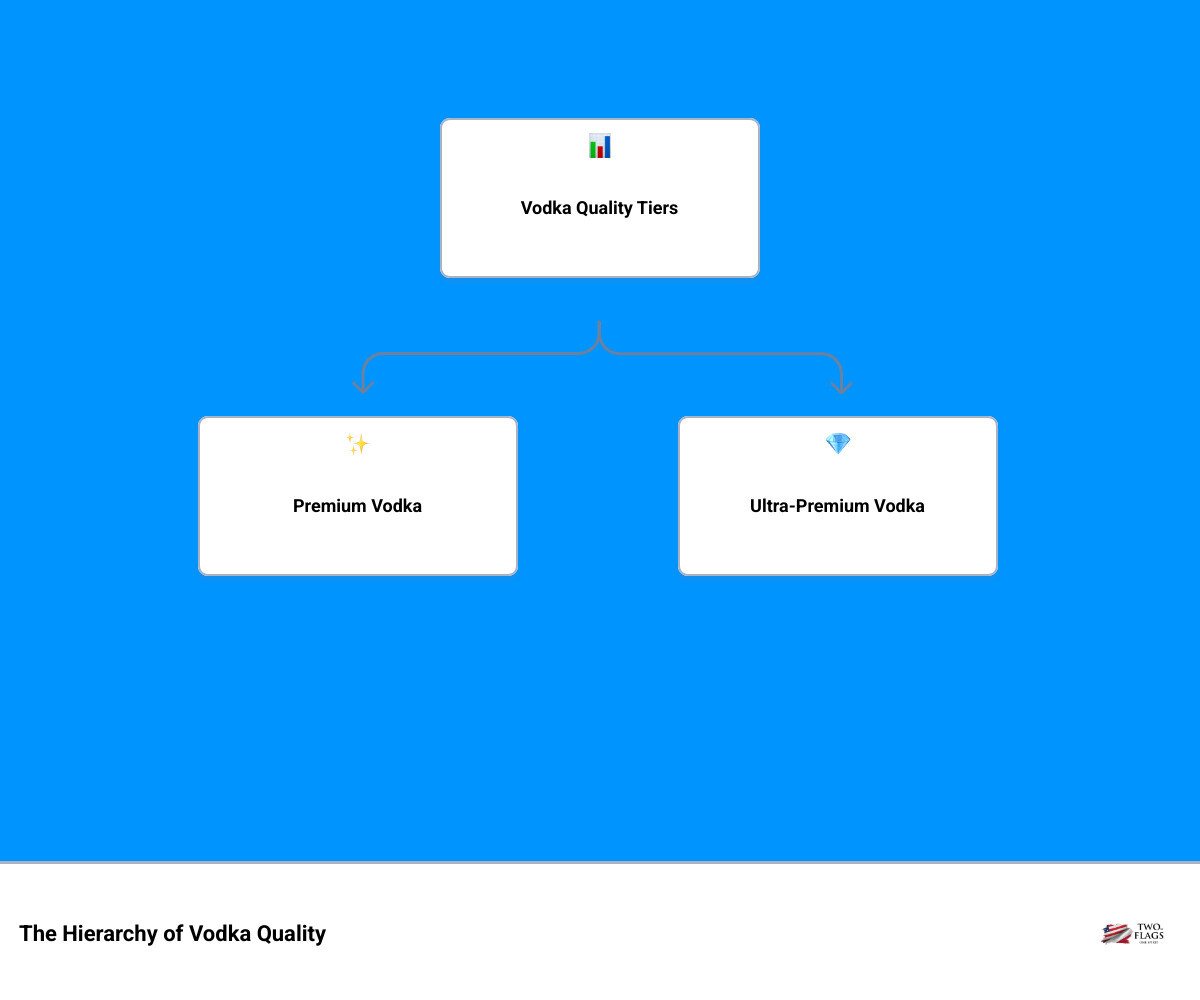
What is premium vodka? terms you need:
The Foundation of Quality: Ingredients and Water
Think of premium vodka like a beautiful symphony - every note matters, starting with the very first ones. The foundation of exceptional vodka isn't built in fancy marketing meetings or glossy bottles. It's built in grain fields, potato farms, and pristine water sources where quality begins its journey.
What is premium vodka? At its core, it's a spirit that refuses to compromise on its raw materials. While mass-market vodkas might cut corners with cheaper ingredients, premium producers understand that you simply can't polish mediocrity into excellence.
What is premium vodka? The Role of Raw Materials
The story of every great vodka starts long before distillation begins. It starts with a farmer's careful selection of the finest grains or the perfect potato harvest. This isn't just romantic storytelling - the raw materials you choose literally become the soul of your vodka.
Premium vodka producers are incredibly picky about their base ingredients, and for good reason. Wheat creates vodkas with a gentle, almost creamy character - think of soft bread fresh from the oven. Rye brings personality to the party with its spicy kick and complex earthy notes that dance on your tongue.
Barley offers something special too, lending those subtle vanilla hints that whiskey lovers might recognize. Meanwhile, potatoes create some of the smoothest, most full-bodied vodkas you'll ever taste - there's something almost luxurious about their creamy texture.
Some adventurous distillers even use grapes, creating vodkas with bright, fruity notes that surprise and delight. Each ingredient tells its own story through flavor, and premium producers choose their storyteller very carefully.
The difference between premium and standard vodka often comes down to this simple truth: premium brands source heritage grains and select varieties specifically for their flavor contributions. They're not just looking for any fermentable sugar - they're seeking ingredients that will create something memorable.
For a fascinating look at how these carefully chosen ingredients transform into vodka, check out our guide on Vodka's Journey: A Step-by-Step Guide to How It's Crafted.
The Unseen Ingredient: The Importance of Water
Here's something that might surprise you: your favorite premium vodka is roughly 60% water. That means water isn't just an ingredient - it's practically the co-star of the show. Yet most people never think about it.
Premium vodka makers obsess over their water sources, and they should. Spring water from ancient aquifers carries a mineral profile developed over thousands of years. Glacier water offers purity that's hard to match. Artesian water brings its own unique character from deep underground sources.
The mineral content in water might seem like a tiny detail, but it shapes the final vodka's smoothness and mouthfeel in ways that would amaze you. Too many minerals, and your vodka tastes harsh. Too few, and it feels flat and lifeless.
Premium producers often go to extraordinary lengths to source the perfect water, then treat it with meticulous care to remove any unwanted elements while preserving the characteristics that make it special. This attention to the "invisible" ingredient is part of what separates premium vodka from the rest.
When you sip a truly exceptional vodka, you're not just tasting the grain or potato - you're experiencing the pure essence of water that's been carefully selected and treated to create that silky, clean finish that makes you close your eyes and smile.
The Art of Purity: Distillation and Filtration
Once you have those premium raw materials fermented into an alcoholic wash, the real magic begins. This is where skilled distillers transform that rough, cloudy liquid into the crystal-clear spirit we know and love. Think of distillation and filtration as the sculptor's tools - they chip away everything unnecessary to reveal the masterpiece hidden within.
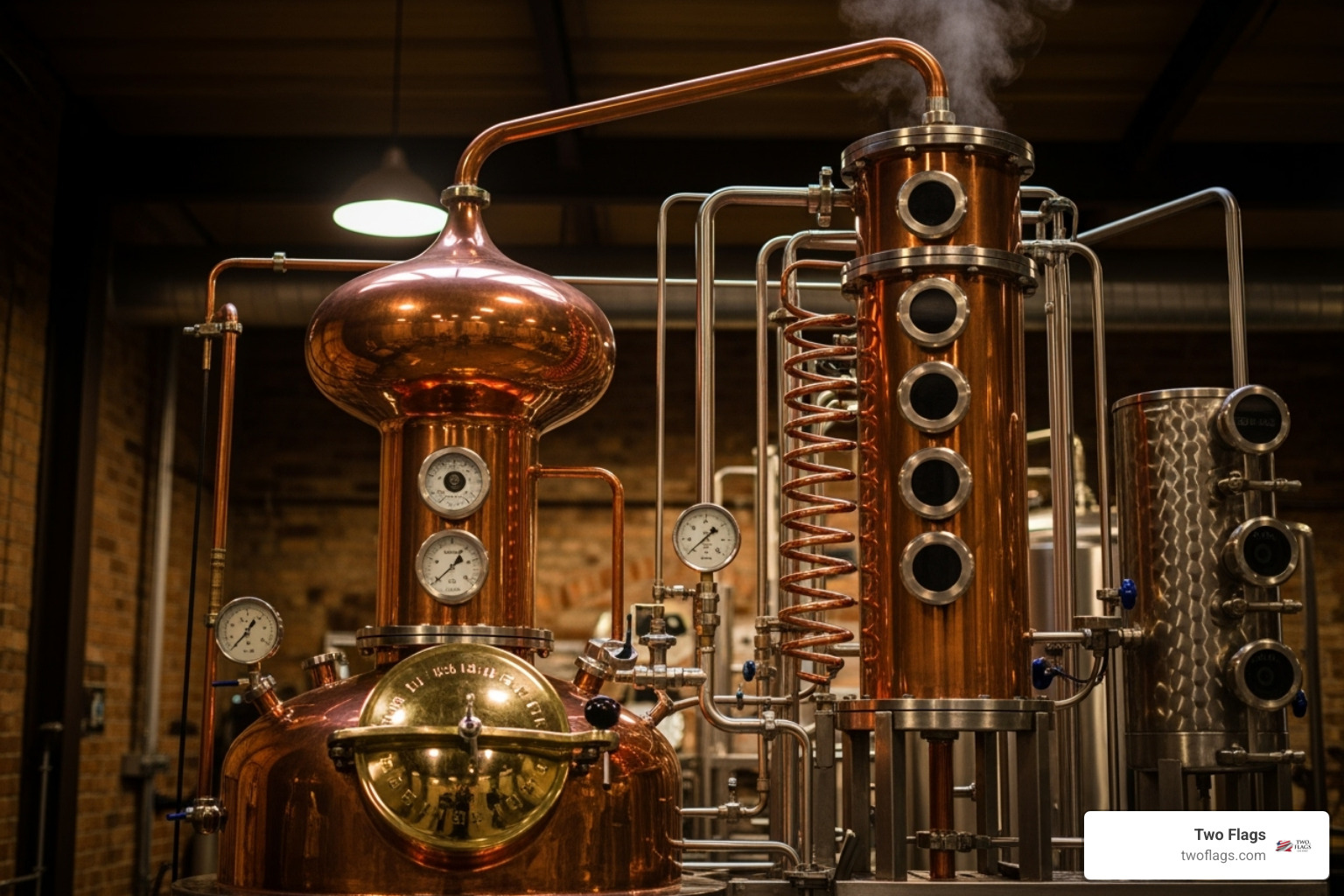
Distillation: The Heart of Vodka Production
Distillation is essentially controlled evaporation and condensation. You heat the fermented wash, and the alcohol vapors rise first because alcohol has a lower boiling point than water. But here's where premium vodka production gets interesting - it's not just about separating alcohol from water.
During distillation, skilled distillers carefully remove unwanted compounds like fusel oils and other impurities that can make vodka taste harsh or leave an unpleasant burn. This process requires patience and expertise. The distiller must know exactly when to capture the "heart" of the distillation - the cleanest, purest alcohol - while discarding the "heads" and "tails" that contain less desirable compounds.
Most premium vodkas use column stills equipped with multiple rectification plates. These sophisticated systems allow for incredibly precise separation, helping the spirit reach around 96% ABV (the EU standard) before it's diluted with pure water. This high level of alcohol purity is crucial for understanding what is premium vodka? - it's about achieving maximum purity while preserving the subtle character from those quality base ingredients.
Here's something that might surprise you: more distillations aren't always better. You'll see some brands bragging about being "distilled five times!" or even more. But the truth is, over-distillation can actually strip away the delicate flavors that make premium vodka special. The best distillers know when to stop - they want purity, but they also want to preserve that subtle character that comes from their carefully chosen grains or potatoes.
Filtration: Polishing the Final Spirit
If distillation is the rough sculpting, then filtration is the fine polishing that gives premium vodka its signature smoothness. This is where you really see the difference between standard and premium production methods.
Activated charcoal is the most common filtration material, and it's incredibly effective at absorbing unwanted flavors and aromas. But premium producers often go several steps further. Some use quartz sand for an extra level of refinement, while others employ unique materials that add their own subtle touch to the final product.
The goal isn't to create a completely flavorless spirit - that's a common misconception. Instead, premium filtration aims to remove harshness while preserving the gentle characteristics that make each vodka unique. This careful balance is what creates that creamy, silky mouthfeel that defines premium vodka.
Some producers use freeze filtration, where the vodka is chilled to extremely low temperatures. This process helps remove any remaining impurities and can create an exceptionally smooth texture. It's these extra steps, these attention-to-detail moments, that separate premium vodka from the mass-market alternatives.
The texture improvement from proper filtration is remarkable. You'll notice the difference immediately when you taste a well-filtered premium vodka - it should feel smooth and almost velvety on your tongue, with no harsh burn or unpleasant aftertaste.
To dive deeper into this fascinating process, check out Why Vodka Filtration Matters: A Deep Dive. Understanding these production methods helps you appreciate why premium vodka commands a higher price - and why it's worth every penny for the discerning drinker.
What is Premium Vodka and How is it Different?
We've explored the ingredients and production methods, but the real test of a premium vodka is in the glass. It's about the sensory experience – how it looks, smells, feels, and tastes. This is where the meticulous efforts in sourcing and crafting truly shine through, differentiating premium from ordinary.
Decoding the Flavor Profile and Tasting Notes
One of the most common misconceptions about vodka is that it's a flavorless, neutral spirit. While neutrality is a characteristic sought after in some vodkas, particularly those designed solely for mixing, premium vodkas often aim to retain subtle characteristics of their base ingredients. This results in a richer, more refined drinking experience with discernible tasting notes.
When we talk about premium vodka, we often describe a smoother, more viscous mouthfeel, frequently characterized as creamy or silky. This luxurious texture is a direct result of superior ingredients and meticulous distillation and filtration. Beyond texture, you might encounter a range of subtle flavors:
- Citrus and Floral Aromas: Some premium vodkas, especially those made from wheat or grapes, can present bright, crisp notes of lemon zest, orange peel, or delicate floral hints.
- Creamy and White Pepper Notes: Vodkas made from potatoes often deliver a rich, full-bodied, and creamy mouthfeel, sometimes accompanied by a subtle hint of white pepper or vanilla.
- Malt and Grass Elements: Barley-based vodkas can offer a distinct cereal "bite" with notes of malt, grain, or even a fresh, grassy undertone.
- Zesty and Spicy Character: Rye vodkas are known for their lively and complex profiles, often featuring zesty notes, a hint of spice, and a distinctive earthiness.
- Subtle Sweetness: Many premium vodkas possess a slight, natural sweetness, a pleasant counterpoint to their inherent alcoholic warmth.
These nuanced flavors and the superior mouthfeel are what allow premium vodka to be appreciated on its own, showcasing the craftsmanship behind each bottle. For those who appreciate the subtle complexities of fine spirits, understanding these profiles is key to truly grasping what is premium vodka?.
To find vodkas perfect for savoring on their own, check out No Mix, No Fuss: Top Vodkas for Sipping Solo.
How to Enjoy Premium Vodka
The beauty of premium vodka is its versatility, but also its capacity to be enjoyed in its purest form. While standard vodkas often serve as a blank canvas for cocktails, premium vodka invites appreciation of its inherent qualities.
Here are some ways we recommend enjoying premium vodka:
- Neat: Many connoisseurs prefer premium vodka served neat, allowing its full flavor profile and smooth texture to be experienced without dilution. We suggest serving it well-chilled, ideally between 0 and -4°C, or even at a moderate room temperature to let its aromas fully develop.
- On the Rocks: For a slightly diluted, cooler experience, serving premium vodka over a large, single ice cube is ideal. This allows for slow dilution, preventing the ice from melting too quickly and watering down the spirit.
- With a Splash of Water or Twist: A small splash of pure, cold water can sometimes "open up" the vodka, revealing more subtle aromas. A twist of lemon or lime can add a refreshing citrus lift without overpowering the spirit's delicate character.
- In Classic Cocktails: While premium vodka can be enjoyed solo, its superior quality also lifts classic cocktails. A premium vodka makes an exceptional Martini, where its smoothness and clean finish are paramount, or a refined Vodka Tonic. The goal here is to improve the cocktail, not mask the vodka.
The next time you reach for a bottle, consider stepping away from the cocktail shaker first, and give premium vodka the attention it truly deserves. Making an informed choice about your vodka can significantly improve your drinking experience. Our guide, Your Ultimate Guide to Picking the Perfect Vodka, can help you further.
Perfect Pairings: Enhancing Vodka with Food
Just like fine wines or whiskies, premium vodka can be a fantastic companion to food. Its clean, crisp profile and often subtle flavors make it an excellent palate cleanser and a versatile partner for a variety of dishes. The key is to choose foods that either complement its delicate notes or provide a contrasting texture or flavor that highlights the vodka.
Here are some of our favorite food pairings that truly bring out the best in premium vodka:
- Caviar: This is arguably the most classic pairing. The salty, briny burst of caviar is perfectly balanced by the clean, smooth character of chilled vodka, which acts as a refreshing palate cleanser.
- Smoked Fish: Smoked salmon, trout, or sturgeon, with their rich, oily textures and smoky flavors, find a delightful counterpoint in the crispness of premium vodka.
- Sushi and Sashimi: The delicate flavors of fresh seafood in sushi and sashimi are beautifully complemented by vodka's purity, allowing the natural tastes to shine without being overwhelmed.
- Soft Cheeses: Creamy, mild cheeses like brie, camembert, or fresh goat cheese pair wonderfully with premium vodka. The vodka cuts through the richness of the cheese, refreshing the palate.
- Charcuterie: Cured meats such as prosciutto, salami, or chorizo, with their savory, sometimes spicy notes, are excellent with vodka. The spirit's clean finish prepares the palate for the next bite.
- Pickled Vegetables: The acidity and tang of pickled cucumbers, mushrooms, or onions offer a vibrant contrast to vodka's smoothness, a traditional pairing in many Eastern European cultures.
These pairings transform the act of drinking vodka into a culinary experience, showcasing how this spirit, when chosen carefully, can lift a meal. This thoughtful approach to consumption is another facet of understanding what is premium vodka? and its place at the table.
Debunking Myths: Is Premium Vodka Worth the Price?
We've explored the craftsmanship behind what is premium vodka? - from carefully selected ingredients to meticulous production methods. But let's address the elephant in the room: does that higher price tag actually mean you're getting a better product, or are you just paying for fancy marketing?
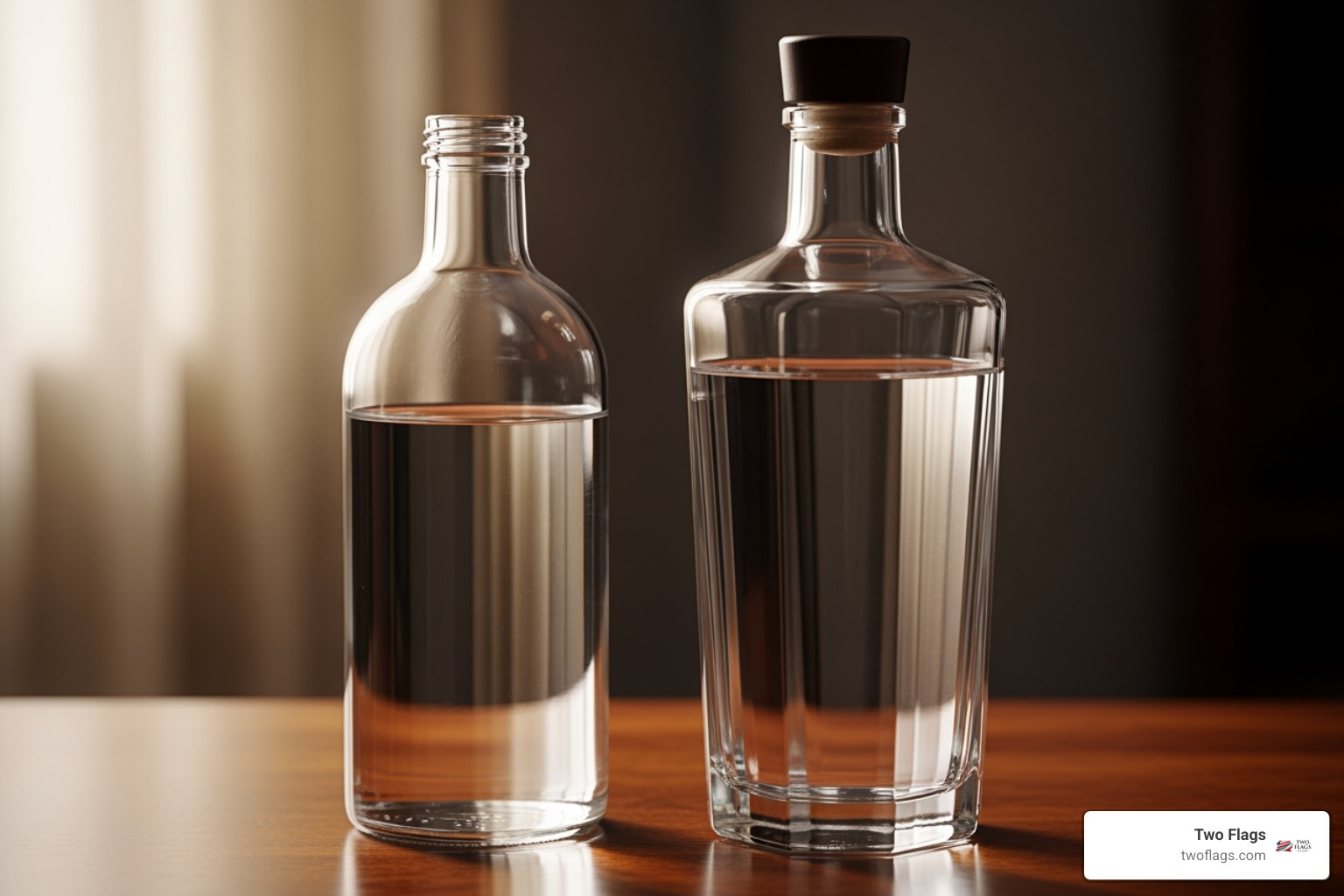
Beyond the Price Tag: What is premium vodka really worth?
Here's the truth: premium vodka costs more because it genuinely costs more to make. When you're using the finest organic grains instead of industrial-grade starches, sourcing pristine water from natural springs rather than municipal supplies, and investing in slow, careful distillation processes - your production costs naturally increase.
Think about it this way. Premium ingredients like heritage grains or organic potatoes cost significantly more than standard alternatives. The meticulous production process we discussed earlier - with its multiple distillations and complex filtration systems - requires specialized equipment, more time, and greater expertise. You can't rush quality.
Craftsmanship and attention to detail at every stage, from grain selection to bottling, adds real value. When distillers take the time to carefully separate the purest alcohols and discard harsh compounds, when they filter through premium materials like activated charcoal or quartz sand - these steps create a genuinely smoother, cleaner spirit.
But here's where it gets interesting. Consumer perception plays a huge role too. Blind taste tests have shown that people sometimes prefer less expensive vodkas when they can't see the labels. This tells us something important: while quality differences are real, they're often subtle. What is premium vodka? It's both objectively better in terms of purity and smoothness, and subjectively valued based on your personal taste preferences.
The real question isn't whether premium vodka is "worth it" - it's whether you can taste and appreciate the difference. If you're someone who enjoys sipping vodka neat or values that silky mouthfeel in a perfectly crafted martini, then yes, the investment makes sense. If you're mixing it with strong flavors that mask the vodka's character, you might not notice the difference.
At Two Flags, we believe premium quality shouldn't require a premium lifestyle. That's why we focus on creating luxury quality at an unbeatable value - making exceptional vodka accessible to anyone who appreciates craftsmanship.
For deeper insights into what makes spirits truly exceptional, check out these Expert opinions on quality spirits.
Common Misconceptions About Vodka
Let's bust some myths that keep people from truly understanding and appreciating premium vodka. These misconceptions have been around so long, they've become "common knowledge" - but they're simply not true.
"All vodka tastes the same" is probably the biggest myth out there. This couldn't be further from reality. The raw materials matter enormously. A vodka made from wheat will have different characteristics than one made from rye or potatoes. The water source, distillation method, and filtration all create distinct flavor profiles and textures. Try tasting different premium vodkas side by side - the differences become obvious quickly.
"Vodka is only for mixing" sells this spirit way short. While vodka makes excellent cocktails, premium vodka is specifically crafted to be enjoyed neat. The smooth texture, clean finish, and subtle complexities are meant to be savored on their own. Limiting premium vodka to cocktails is like using aged whiskey only in mixed drinks - you're missing the point.
"More distillations are always better" sounds logical but isn't necessarily true. Yes, multiple distillations remove impurities and create purity. But excessive distillation can strip away the subtle character that comes from quality base ingredients. The goal isn't maximum distillation - it's optimal distillation that balances purity with character. Sometimes a single, perfectly executed distillation with premium ingredients beats multiple distillations of inferior materials.
"Clear color means purity" confuses appearance with quality. Even poorly made vodkas can be crystal clear. True purity comes from rigorous production processes that remove unwanted compounds - not just visual clarity. The real test of purity is in the taste, smoothness, and absence of harsh aftertastes.
Understanding these realities helps you make informed choices about vodka. What is premium vodka? It's a spirit that deserves the same respect and appreciation we give to other premium spirits - when you understand what goes into making it truly exceptional.
Conclusion: Lift Your Vodka Experience
Understanding what is premium vodka? has taken us on a fascinating journey through exceptional spirits. We've finded that premium vodka isn't just about a fancy bottle or clever marketing - it's about genuine craftsmanship at every single step.
From the finest raw materials like carefully selected grains and pristine water sources, to the meticulous distillation and filtration processes that create that signature smoothness, every detail matters. Premium vodka offers something truly special: a creamy, silky mouthfeel and subtle flavor notes that reflect the spirit's origins and the distiller's skill.
The beauty of premium vodka lies in its versatility. It's designed to be savored neat at the perfect temperature, enjoyed on the rocks for a refreshing experience, or used as the foundation for exceptional cocktails that showcase rather than mask its quality. This isn't just a neutral mixer - it's a spirit worthy of appreciation.
We hope this guide helps you move beyond the common myths about vodka. Trust your own palate when exploring different premium options. Pay attention to the ingredients, production methods, and most importantly, how the vodka makes you feel when you taste it. The journey to finding your perfect premium vodka should be enjoyable, not intimidating.
At Two Flags Vodka, we're passionate about creating ultra-premium, organic, gluten-free vodka that honors traditional Polish craftsmanship while embracing modern innovation. As a family-owned Polish-American brand recognized as "Exceptional" by the Beverage Testing Institute, we believe luxury quality shouldn't break the bank. Our mission is making truly premium vodka accessible to discerning drinkers throughout Chicagoland and beyond.
Whether you're just beginning to explore premium spirits or you're a seasoned connoisseur, great vodka is about more than just the liquid in the bottle - it's about the experience, the craftsmanship, and the stories that connect us all.
Ready to explore more exceptional options? Check out Beyond the Basics: A Guide to Premium Vodka Brands for your next findy.





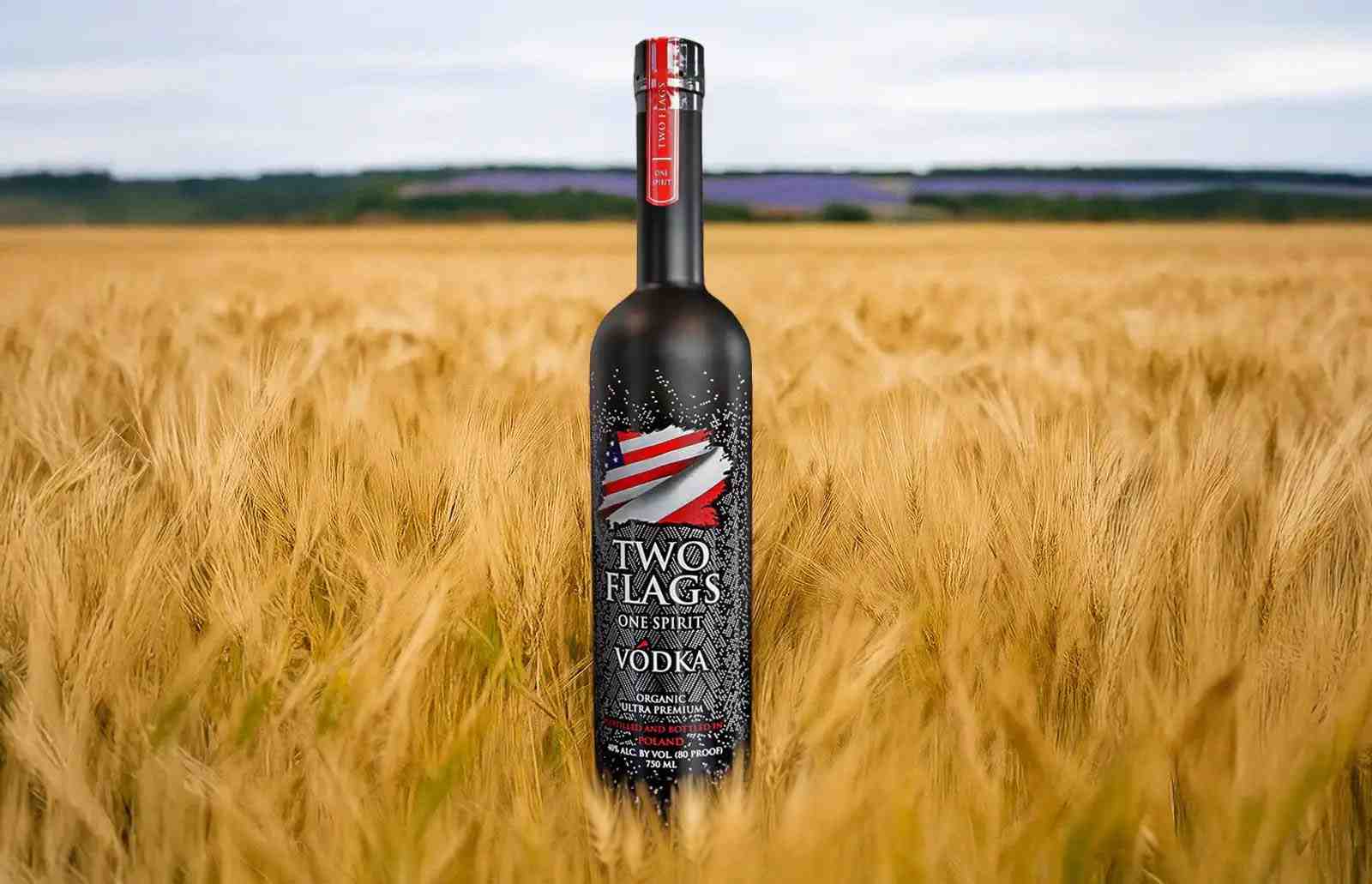
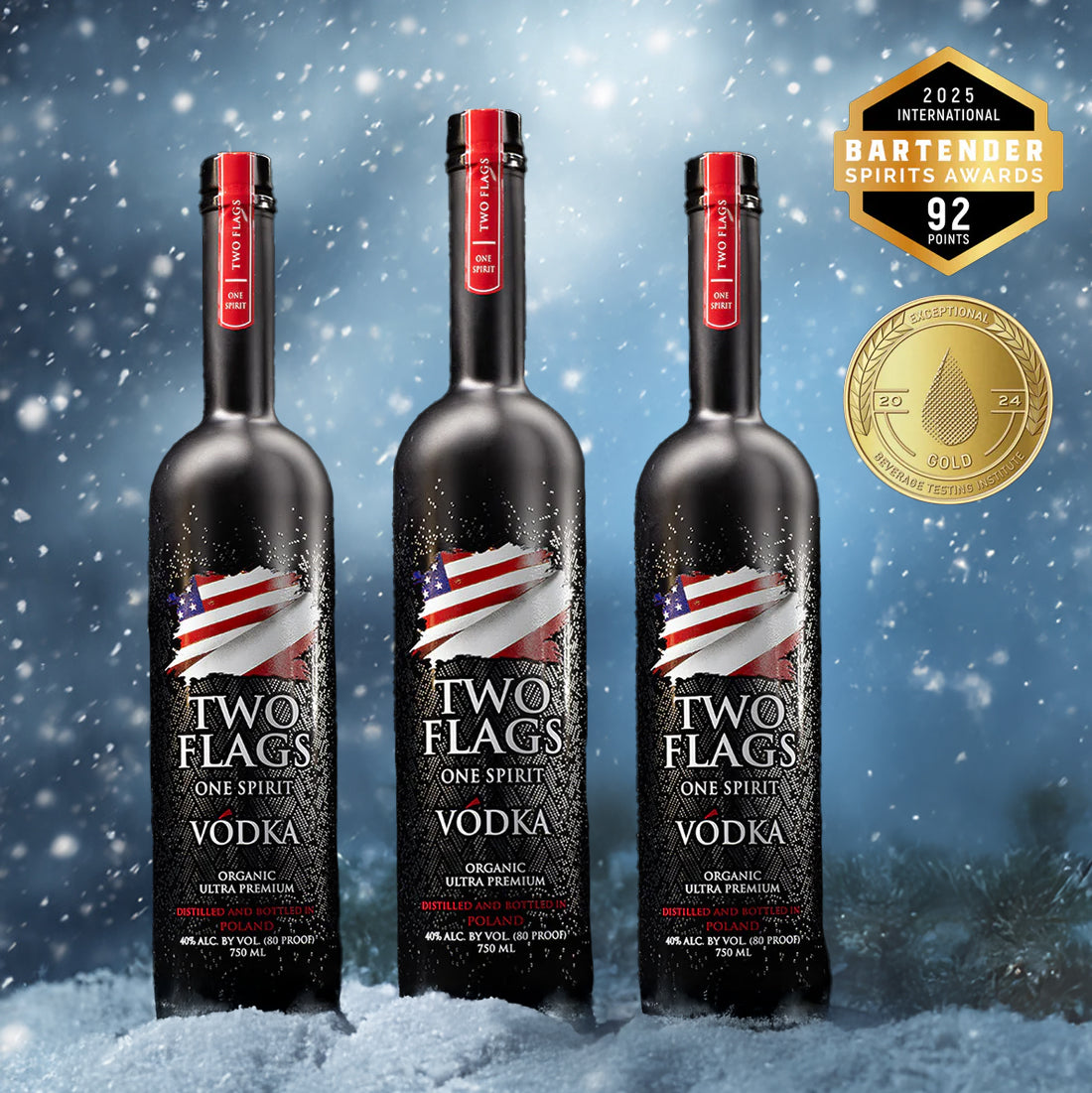
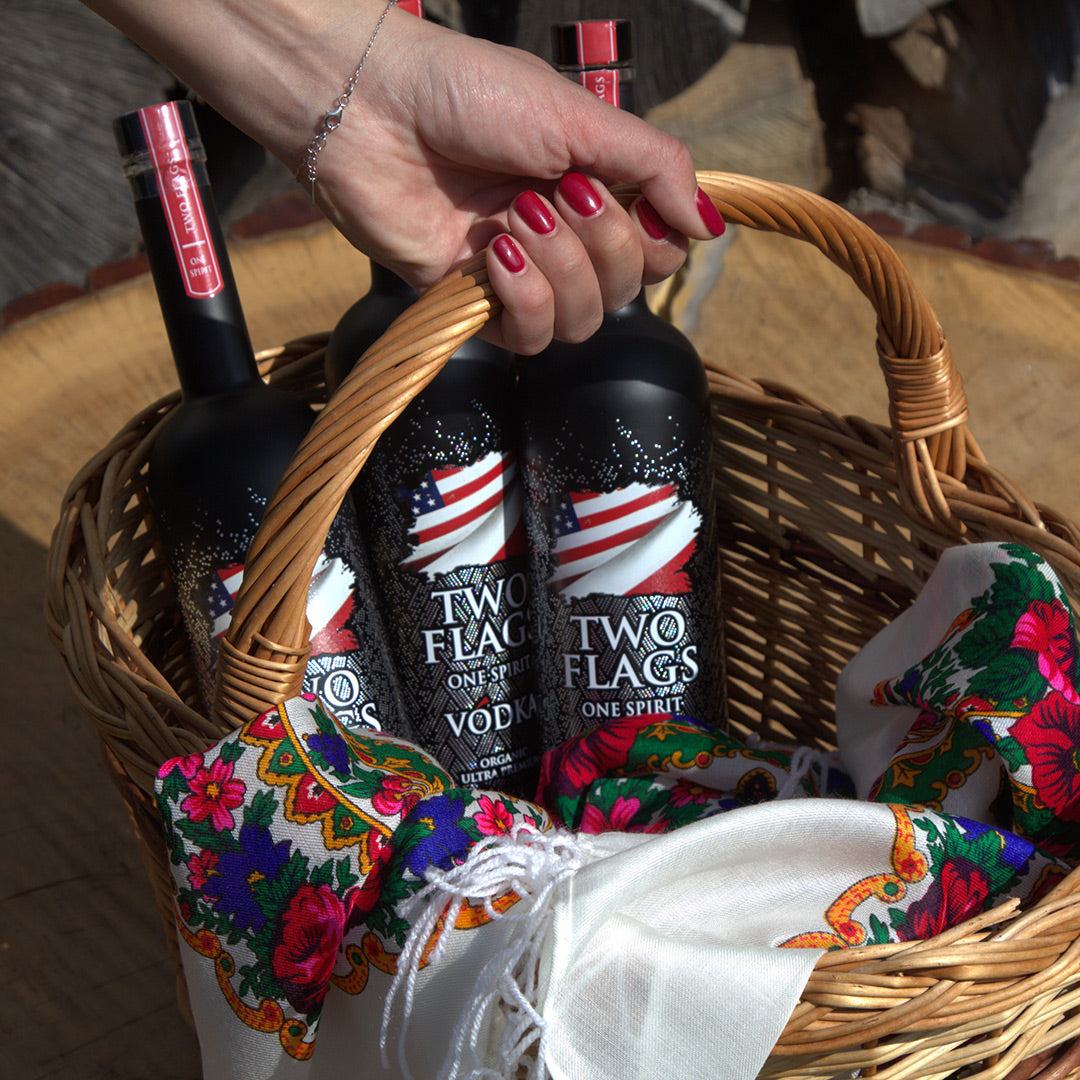
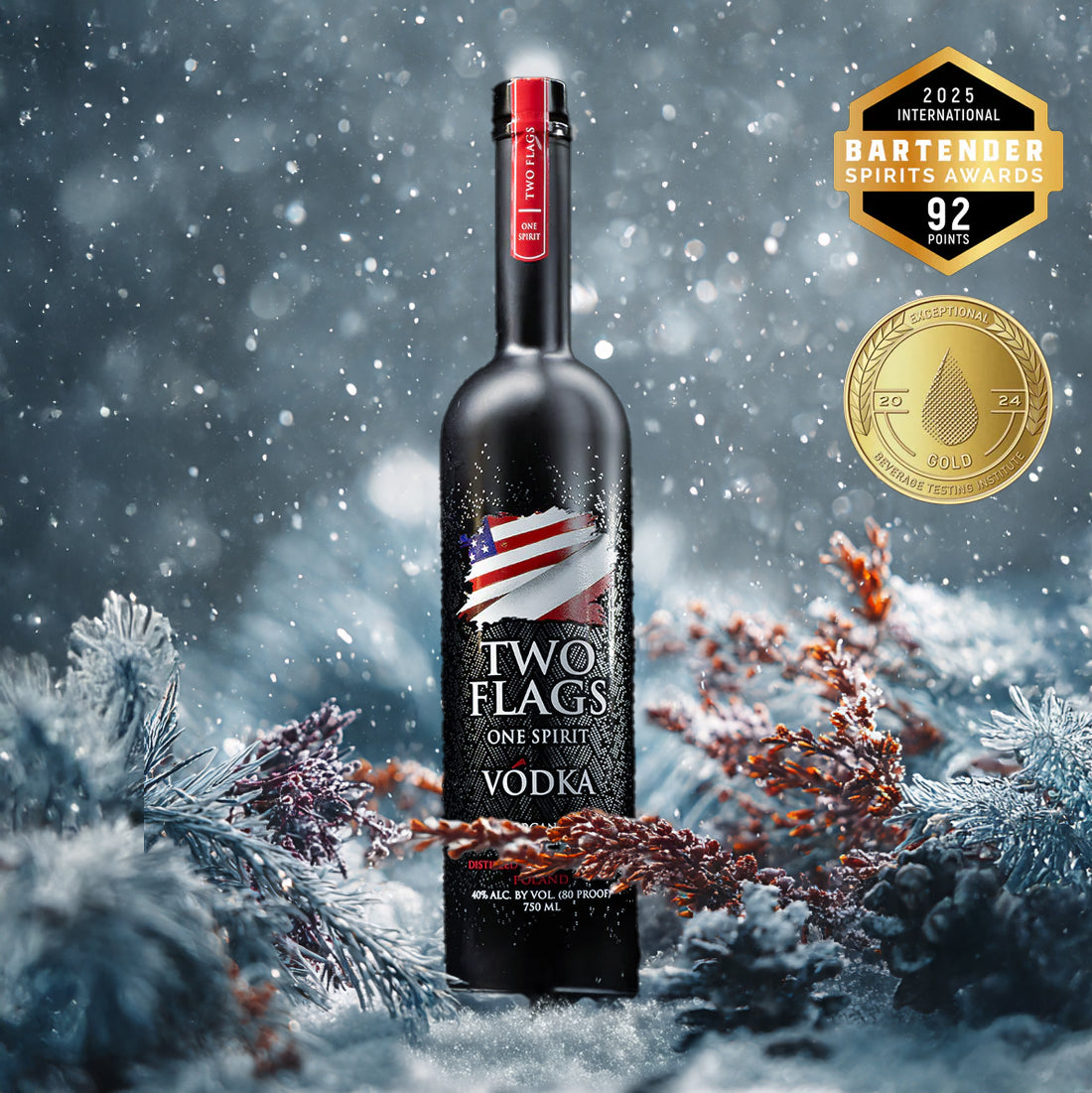
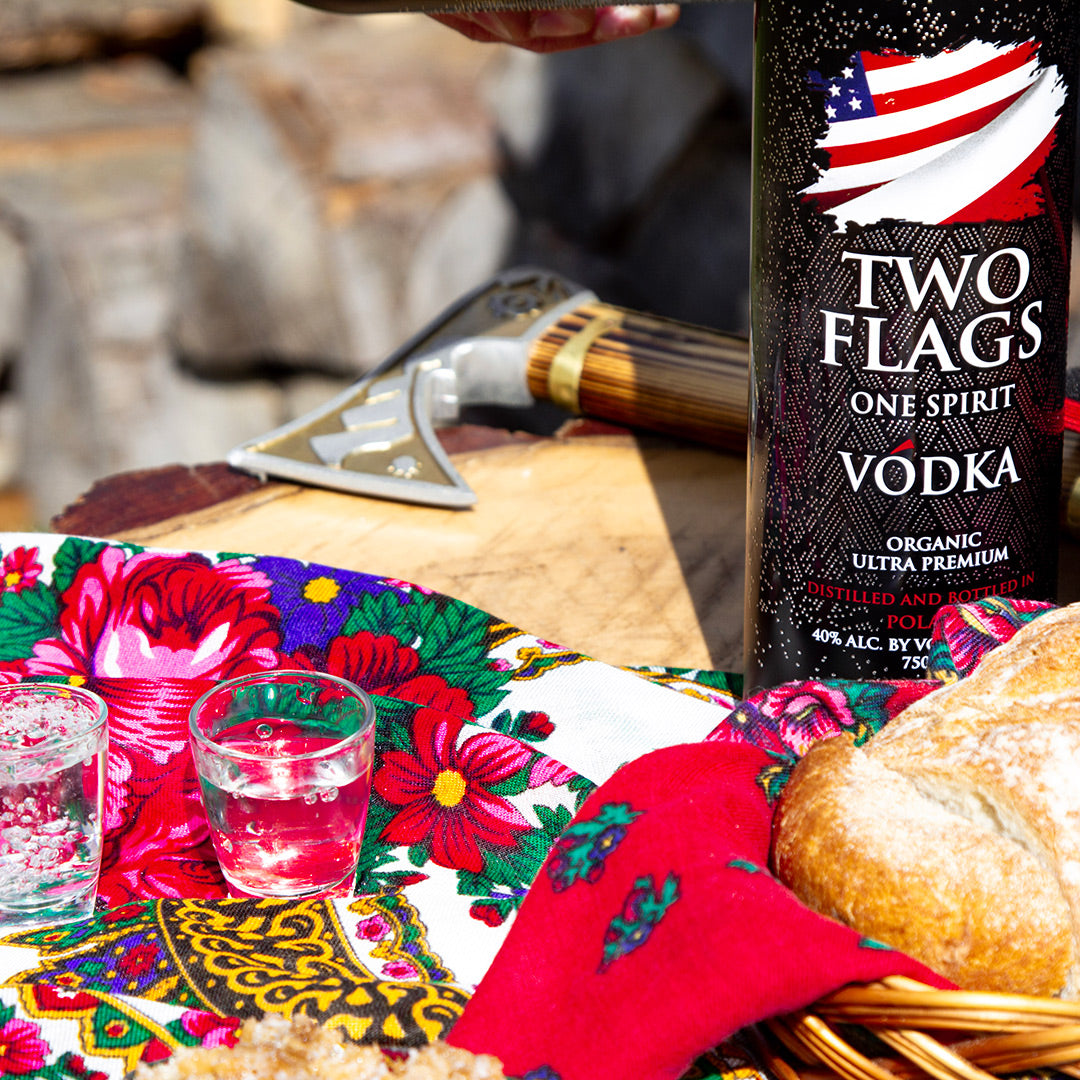
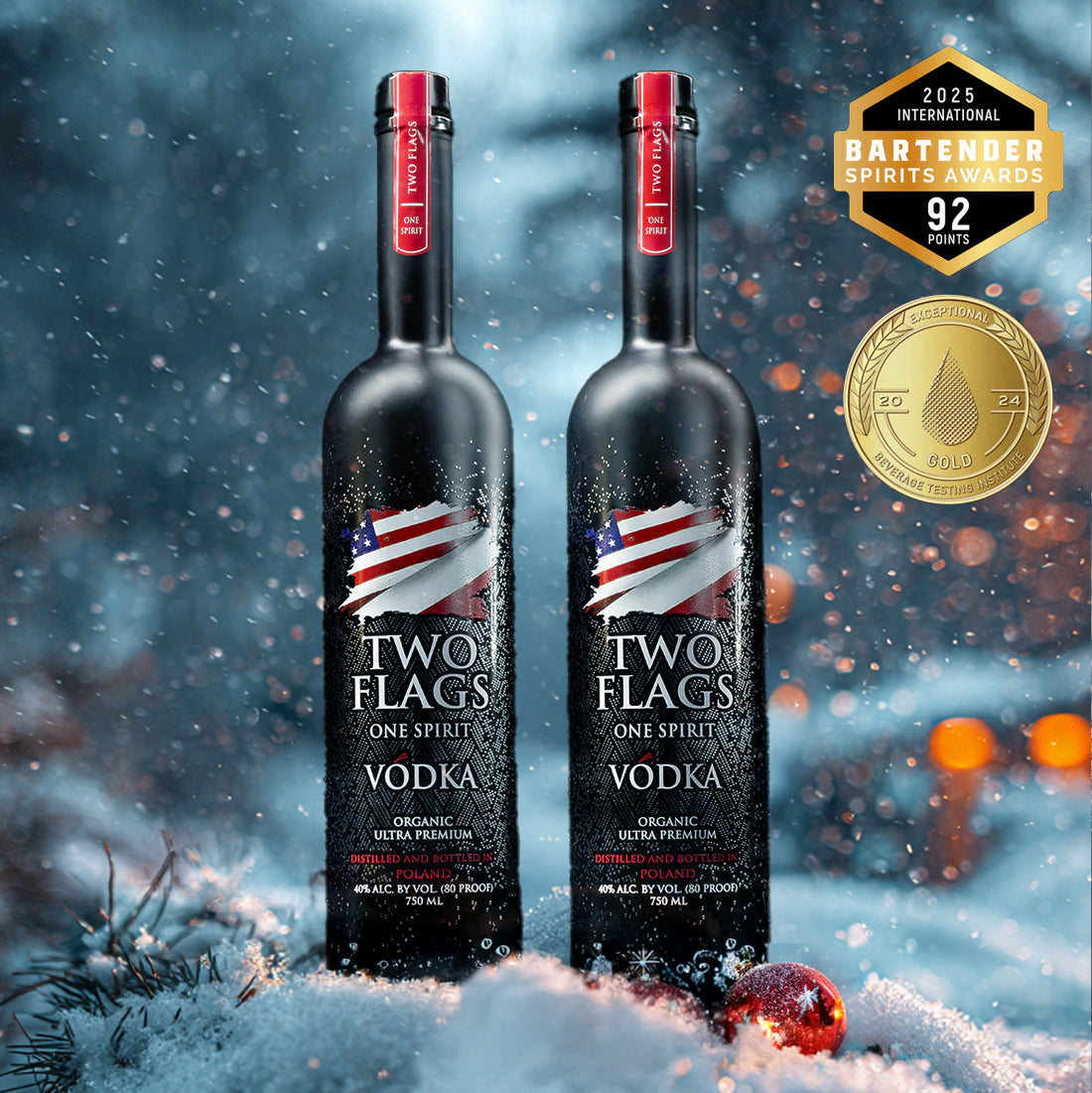
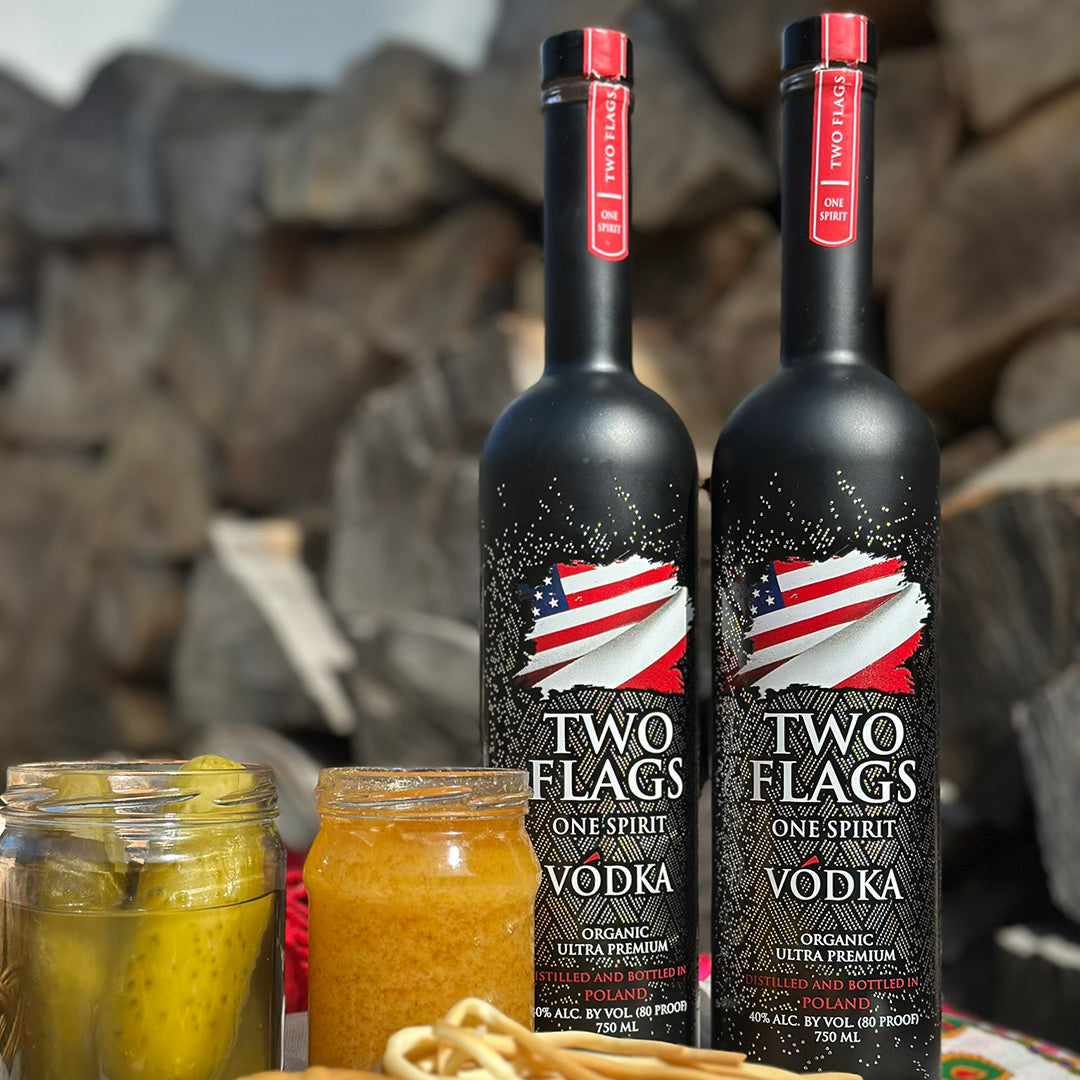
Zostaw komentarz
Ta strona jest chroniona przez hCaptcha i obowiązują na niej Polityka prywatności i Warunki korzystania z usługi serwisu hCaptcha.